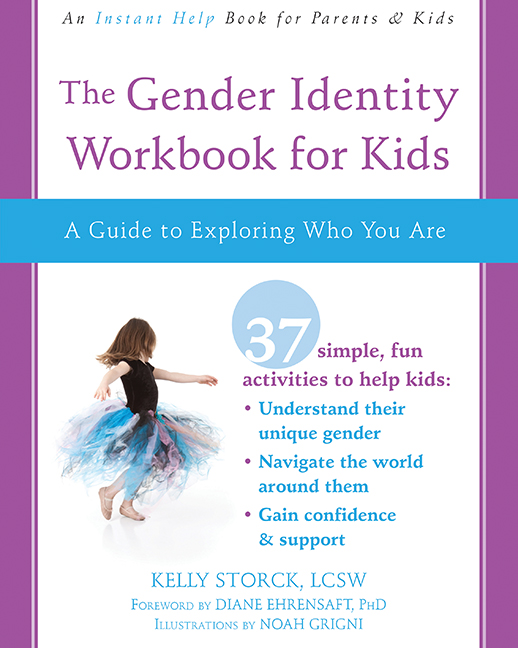An increasing number of children are asserting their gender in unexpected ways. To understand and support these little humans, it is imperative that we have the language and information that reflects their experiences.
First, let’s make sure we understand the basic and distinctly separate tenets of gender. Assigned sex is the label of male or female given upon birth, determined almost exclusively by genitalia.
Gender expression is the way people “wear” their gender, including preferences for hairstyles, clothes, and activities. Gender identity is a person’s deeply held sense of being male, female, neither, both, or something else.
When a child or family presents with questions about gender, it’s helpful to explain and explore these different parts of gender to create an informed and shared understanding. Therapeutic interventions should focus on honoring a child’s gender experience, without pressure to change the way they feel or express gender. To create safe and affirming spaces for children in your care:
-
Ask about and use the name and pronouns that feel right for a child: “My name is Kelly and I use she/her pronouns. What name do you like to use and what are your pronouns?”
-
Speak openly and directly: “There are so many ways people experience and know their gender. People can be boys, girls, neither, both, or something else. I’d like to hear more about your gender.”
-
Reflect back what a child shares and invite exploration: “It’s great to listen to you know yourself and your gender. I’m wondering how you feel about…or how it feels when…”
-
If a child is struggling, let them know you are there: “This can all be frustrating, overwhelming, and sad sometimes. I am here to help you and the adults around you understand your gender so you can feel happier and more comfortable. Thanks for sharing your feelings with me.”
 Kelly Storck, LCSW, is a licensed clinical social worker with a private therapy practice in St. Louis, MO. Kelly’s focus is in gender care and advocacy for transgender rights. Along with this work, Kelly presents workshops and trainings on issues relevant to gender diversity with intent to help support the greater health, well-being, and liberty of people of all genders.
Kelly Storck, LCSW, is a licensed clinical social worker with a private therapy practice in St. Louis, MO. Kelly’s focus is in gender care and advocacy for transgender rights. Along with this work, Kelly presents workshops and trainings on issues relevant to gender diversity with intent to help support the greater health, well-being, and liberty of people of all genders.

 2024 Peace Playbook: 3 Tactics to Avoid Clashes with Your Partner
2024 Peace Playbook: 3 Tactics to Avoid Clashes with Your Partner